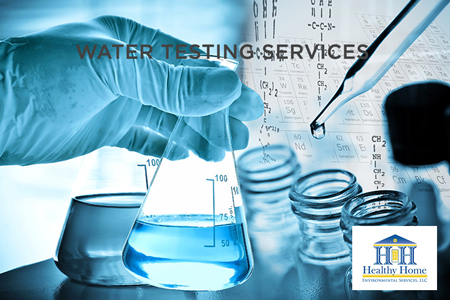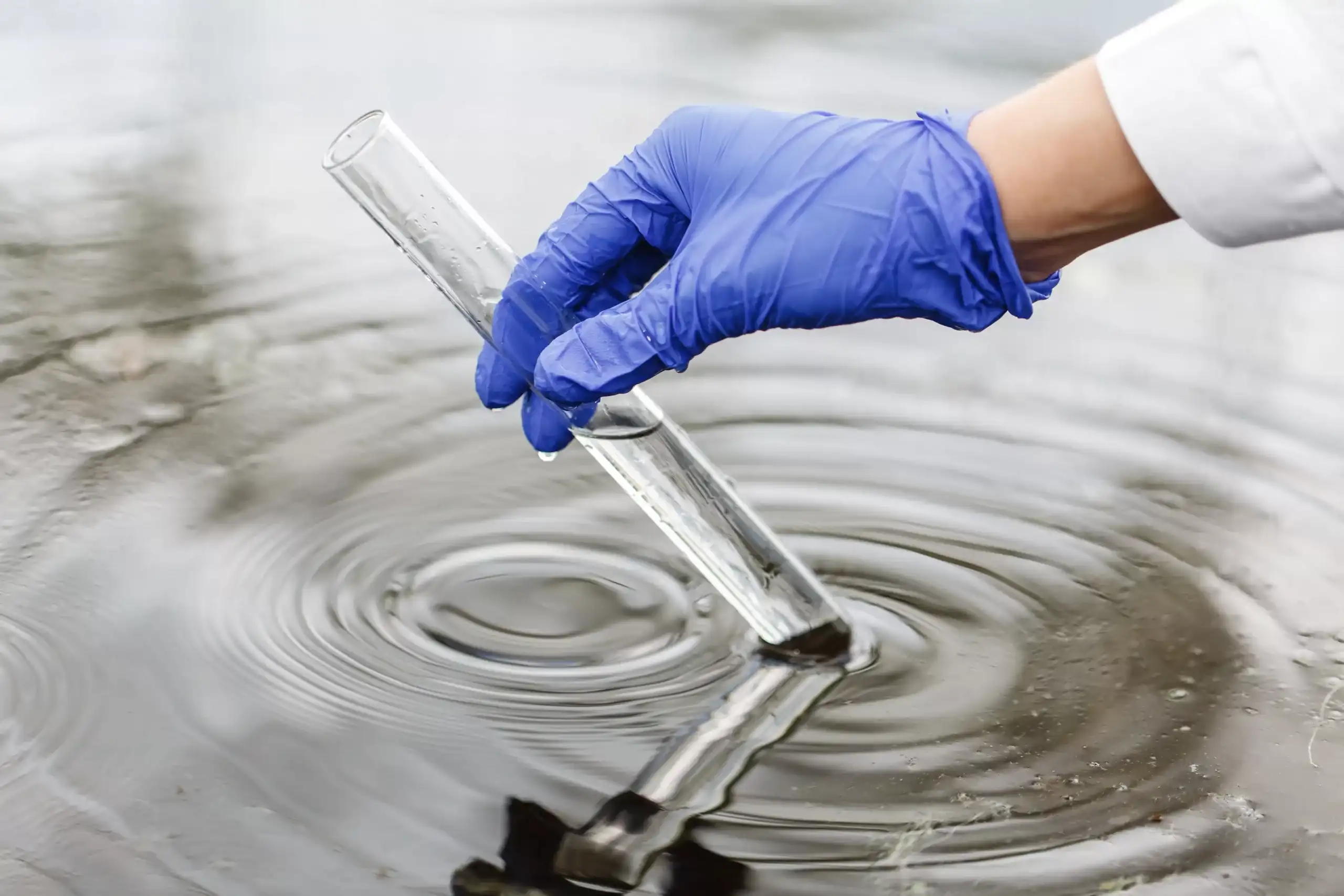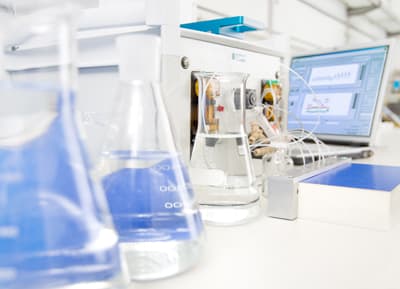Discover Reliable Well Water Testing Services for Your Assurance
Discover Reliable Well Water Testing Services for Your Assurance
Blog Article
Learn Just How Water Testing Can Identify Impurities and Secure Your Family's Well-being
Recognizing the significance of water screening is important for guarding your family's wellness, as our water system can nurture unseen risks. From germs to heavy metals, impurities position serious risks, often undetected without proper analysis. By discovering the mechanics of water testing, one can uncover the undetectable threats prowling in apparently pristine water resources. Yet, just how do you determine which examinations are essential for your household, and what steps should be taken as soon as potential dangers are revealed? As we browse these inquiries, the path to making certain water security and a much healthier living environment comes to be more clear.
Significance of Water Testing
Acknowledging the critical duty water plays in sustaining life, the value of water screening can not be overemphasized. Water is a basic source, important for drinking, food preparation, cleanliness, and numerous commercial processes. Its quality straight impacts public health and wellness. Consequently, ensuring that water is without unsafe compounds is vital for keeping healthy and balanced areas and communities.
Water testing acts as a positive step to identify potential dangers that may compromise water high quality. Via methodical analysis, it aids discover physical, chemical, and biological criteria that can posture risks to human wellness. Routine screening permits the early discovery of problems, helping with timely treatments to avoid prevalent contamination and associated health issues.
Furthermore, water testing sustains regulative compliance, guaranteeing that water service providers satisfy recognized security criteria and standards established by governmental authorities. It fosters transparency and liability, constructing public rely on the supply of water system. Screening supplies useful data that notifies water administration approaches, making it possible for lasting use and preservation of this priceless resource.
Fundamentally, water testing is an indispensable device that safeguards public health, makes sure governing adherence, and promotes the lasting monitoring of water resources. Its relevance in safeguarding both individuals and neighborhoods can not be taken too lightly.
Common Water Contaminants
Among the numerous aspects that can endanger water top quality, typical water impurities consist of a range of physical, chemical, and organic substances that position considerable threats to human wellness and the setting. Physical pollutants often involve debris or organic products put on hold in water, which can affect clearness and taste.
Organic impurities, mainly microorganisms, viruses, and protozoa, develop from human and animal waste getting in water systems. Virus such as E. coli, Giardia, and Cryptosporidium are notorious for creating intestinal ailments and can be particularly dangerous to young children, the senior, and those with endangered immune systems. Nitrates and nitrites, typically stemming from fertilizers, present another health threat, specifically to infants, possibly causing problems like methemoglobinemia or "blue baby syndrome."
In addition, emerging impurities, including pharmaceuticals and personal care products, have raised worries as a result of their determination and unidentified lasting results. Understanding these pollutants is important for carrying out effective water treatment techniques and ensuring safe alcohol consumption water.
Exactly How Water Testing Works
Comprehending the spectrum of impurities in water highlights the value of effective testing approaches to protect public health. Water screening is an organized process made to identify and quantify various pollutants that might position risks to human health.
As soon as samples are accumulated, they undertake lab analysis making use of various methods. Chemical screening usually entails spectrometry or chromatography, both of which can determine and measure details chemical compounds. For microbiological testing, methods such as membrane layer purification or enzyme substrate examinations are used to spot pathogenic bacteria. In addition, physical characteristics like turbidity, ph, and shade are assessed to provide understanding right into the general quality of the water.
The precise methodologies employed in water screening depend upon the particular impurities of worry and the water's intended usage. By constantly using these strenuous screening protocols, scientists and public wellness officials can ensure the safety and security and high quality of water, thus safeguarding areas from possible health threats.
Picking the Right Test
The initial step is analyzing the water source-- be it metropolitan, well, or surface water-- as each has distinct threats. Metropolitan water may call for screening for disinfectant by-products, while well water may require screening for nitrates, bacteria, and heavy metals.
Next, think about current occasions and ecological elements. Nearby agricultural tasks could necessitate testing for pesticides and herbicides, whereas industrial zones can call for checks for chemical toxins. Additionally, any type of changes in water look, smell, or taste should prompt certain testing for common impurities like lead, chlorine, or organic microorganisms.
Professional water testing solutions supply comprehensive packages that target a vast array of possible impurities. These kits commonly straighten with standards established by the Epa (EPA) or neighborhood wellness departments. For a much more tailored technique, talking to a water high quality professional can provide understandings into which specific tests are required based on regional worries and private health demands, making sure the defense of your home's wellness.

Preserving Water Safety

In enhancement to testing, correct upkeep of water supply plays a crucial function. This includes servicing and evaluating pipes systems, storage tanks, and septic systems to prevent leakages or backflow that might introduce pollutants - Well water testing services. Utilizing water filtration systems designed to attend to particular neighborhood problems can better protect against contaminations, supplying an added layer of protection
Public awareness and education are equally vital in preserving water safety. Neighborhoods should be informed about prospective dangers linked with local water sources and the needed actions to mitigate them. Motivating public participation in water safety and security efforts promotes a cumulative obligation that improves general effectiveness.
Inevitably, a detailed technique that integrates routine screening, system upkeep, and neighborhood participation is vital in protecting water high quality. By doing so, family members can be guaranteed of tidy and risk-free water, protecting their health and wellness and wellness.

Verdict
Regular water screening is crucial for determining contaminants such as microorganisms, heavy steels, and chemicals that pose health threats. By evaluating water samples, hidden risks can be detected, ensuring the stipulation of secure alcohol consumption water.
Comprehending the value of water screening is essential for guarding your household's health, as our water supply can nurture unseen threats.Water screening offers as a proactive measure to determine prospective dangers that may jeopardize water top quality.Furthermore, water screening sustains governing compliance, guaranteeing that water suppliers meet established here security requirements and standards set by governmental authorities. Local water might require testing for disinfectant by-products, you can try these out while well water may need screening for nitrates, bacteria, and heavy steels.
Routine water testing is an essential component in keeping the top quality of water sources, enabling timely treatments prior to impurities get to unsafe degrees.
Report this page